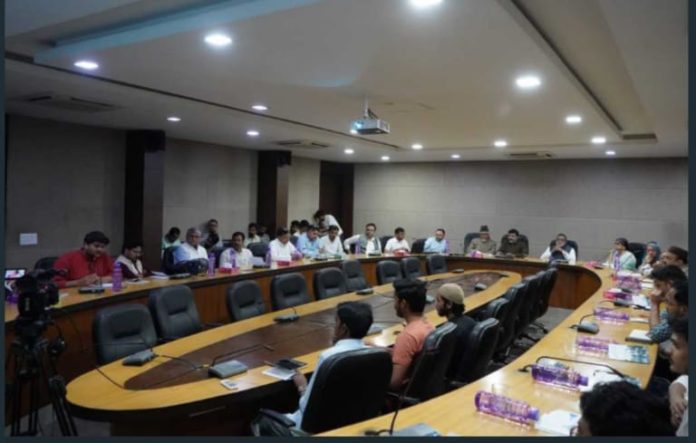New Delhi, May 15: A recent joint study by the Centre for Study and Research (CSR) and NOUS Network Private Limited has dispelled the myth that Muslim-run institutions cater exclusively to Muslim students. The report, titled “A Survey of Muslim-managed Public and Private Institutions of Higher Education in India,” reveals that Hindu students outnumber their Muslim counterparts in these institutions across the country.
According to the report, approximately 55% of students in Muslim-managed institutions are Hindu, compared to 42% who are Muslim. This trend is evident in both universities and colleges managed by the Muslim community. In Muslim-run universities, 52.7% of students are Hindu, while 42.1% are Muslim. Similarly, in Muslim-managed colleges, Hindus constitute 55.1% of the student body, with Muslims making up 42.1% and other minorities 2.8%.
The report highlights that the presence of a higher number of Hindu students is a testament to the inclusivity and educational standards of Muslim-run institutions, countering the misconception that these institutions are exclusive to Muslim students. This also suggests that the quality of education in Muslim-run institutions is competitive with those run by other communities.
The findings were discussed at a roundtable attended by educators, policymakers, and stakeholders. CSR Director Dr. Mohammed Rizwan emphasized the significance of the report as a “myth-buster” and highlighted the need for targeted efforts to improve the educational outcomes of the Muslim community. Despite ongoing challenges, the study underscores the community’s progress and the necessity for further improvements in enrollment rates and dropout reduction.
Prof. Salim Engineer, Vice President of Jamaat-e-Islami Hind (JIH), praised the report but expressed concern about the community’s low representation in higher education. He called for the community to celebrate its achievements while continuing to address existing challenges.
Ali Javed, CEO of NOUS Network Pvt. Ltd., highlighted the report’s uniqueness and its potential as a valuable resource for academics and policymakers. He advocated for collective action to address the educational and socio-economic challenges faced by the Muslim community.
ALSO READ: CSR releases two survey reports
Researcher Abid Faheem presented data showing that Muslims, who constitute over 14% of India’s population, have a significantly lower representation in higher education, with only 4.8% enrollment according to the latest All India Survey of Higher Education (AISHE-2021-22). Faheem emphasized the need for continued efforts to improve this ratio, noting the modest increases in enrollment since the Sachar Committee Report in 2006.
The study also provides a comprehensive overview of Muslim-affiliated educational institutions, including the number of institutions, student demographics, gender ratios, and the types of programs offered. It reveals that out of 1,113 universities in India, only 23 are Muslim-managed, representing just 2.1%. Additionally, Muslim-managed colleges constitute 2.6% of the total 43,796 colleges in India.
The report concludes with a call for policymakers to address the under-representation of Muslims in higher education and to implement strategies that enhance the quality and accessibility of education for the Muslim community.




